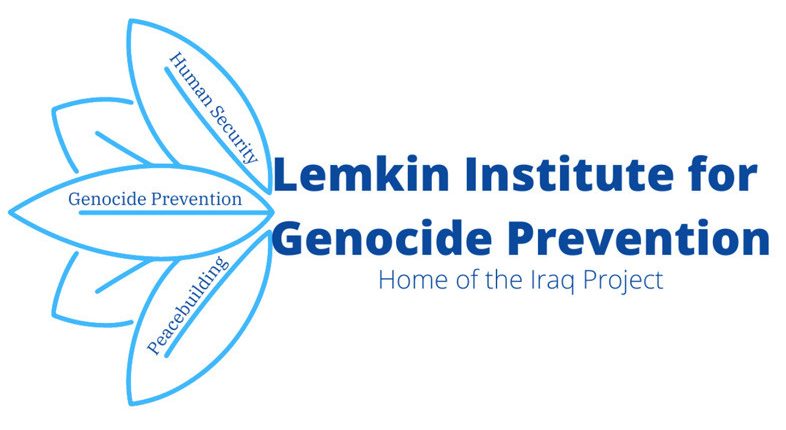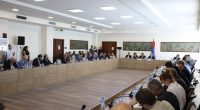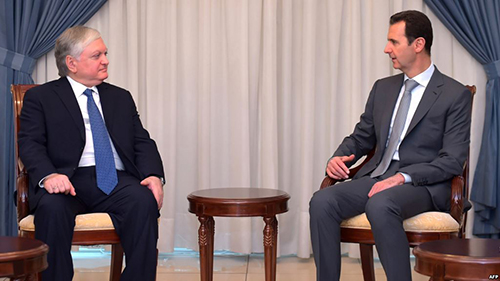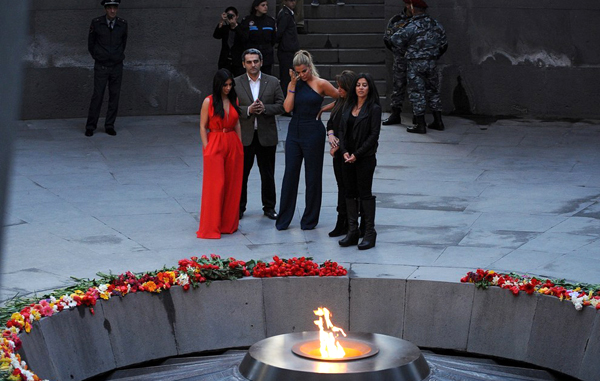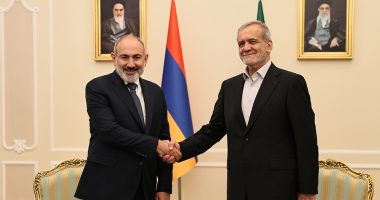The Lemkin Institute for Genocide Prevention has published a new report on the risk of genocide by Azerbaijan in Artsakh (Nagorno Karabakh).
In a statement, the Lemkin Institute for Genocide Prevention said it has released an emergency draft of the report due to the dire circumstances of the blockade and Azerbaijan’s military buildup along the borders of Artsakh and Armenia.
“The Lemkin Institute for Genocide Prevention hopes that this report will contribute to global resolve to protect the lives and the identity of the Armenians of Artsakh, prevent a Second Armenian Genocide, pressure Azerbaijan to accept self-determination for the people of Artsakh, and initiate a long-overdue process of transformative justice in the region that allows Armenians and Azeris to voice their historical grievances and find common ground around accountability, peace-building, and human security. The Report uses the United Nations Framework of Analysis for Atrocity Crimes to outline and analyze (in detail) the risk factors and indicators for atrocity crimes, with a special focus on the crime of genocide. We have chosen to focus on the crime of genocide because the evidence in this report points to the existence of several serious red flags for genocide, typical genocidal patterns, and evidence of the special intent to commit that crime,” an excerpt from the executive summary of the report reads.
The institute said that the evidence presented in the report suggests that the crime of genocide may already be taking place in the form of the blockade.
“In fact, the evidence presented here suggests that the crime of genocide may already be taking place in the form of the blockade, which is both “Causing serious bodily or mental harm to members of the group” and “deliberately inflicting on the group conditions of life calculated to bring about its physical destruction in whole or in part” (paragraphs II.b. and II.c. of the 1948 Genocide Convention). Azerbaijan’s crimes conform to Patterns 5 (Gross human rights violations + mass cultural destruction), 6 (Man-made famine/”Genocide by Attrition”), 7 (Environmental despoliation /”Ecocide” and land alienation), and 9 (Denial and/or prevention of identity) of the Lemkin Institute’s Ten Patterns of Genocide and seem to be headed towards patterns 1 (Gender-neutral mass murder characterized by gendered atrocity) and/or 2 (Mass murder of ‘battle-aged men’ + atrocities against women and children).”
“The deep imbrication of eliminationist anti-Armenian hate within the Aliyev regime and Azerbaijani institutions of government leads us to conclude that Azerbaijan is a genocidal state. This fact must be addressed before there can be any peace in the region,” it added.
The Lemkin Institute for Genocide Prevention warned that “there is alarming evidence that President Aliyev may be planning a military assault on Artsakh in the very near future.”
“A military assault on Artsakh could lead to the mass murder stage of genocide. It would almost assuredly result in the forced displacement of Armenians from Artsakh and the widespread commission of genocidal atrocities, reflecting those committed in the Second Nagorno-Karabakh War of 2020 and subsequent hostilities,” it said.
The Lemkin Institute for Genocide Prevention recommends that members of the international community, including United Nations member states with influence over Azerbaijan, undertake the following actions to prevent the starvation and forced population displacement of Armenians in Artsakh as well as any possible future genocidal assaults on the Armenians of the Republic of Armenia:
- Recognize publicly the threat of genocide against Armenians in the Republics of Artsakh and Armenia that is evidenced by Azerbaijani President Ilham Aliyev’s statements as well as the actions of his regime.
- Demand the immediate lifting of the blockade and the opening of the Lachin Corridor linking Artsakh both to Armenia and to the outside world, as stipulated in the Tripartite Ceasefire Statement of 9 November 2020 and ordered by the ICJ in February and July of 2023.
- Organize an immediate humanitarian airlift to bring aid to the citizens of Artsakh while political deliberations continue.
- Actively intervene to defend Artsakh against an armed attack by Azerbaijan in order to prevent a full-scale massacre against Armenians and the many other international crimes usually committed by the Aliyev regime against Armenians.
- Empower and fund an independent investigative team to conduct a thorough documentation of the current situation in Artsakh, including an investigation of the atrocities committed by Azerbaijani military personnel in the Second Nagorno-Karabakh War and afterwards.
- Utilize all available diplomatic measures, including sanctions and the withdrawal of foreign aid, to challenge the impunity enjoyed by the Aliyev regime in Azerbaijan.
- Pressure Azerbaijan to immediately cease its threats against the people of Artsakh and Armenia and institute a domestic National Mechanism to prevent the crime of genocide as a necessary condition for any foreign aid.
- Encourage the reform of the Azerbaijani education and security sectors, which are deeply tainted by genocidal Armenophobia.
- Support the Armenians of Artsakh with humanitarian and economic aid, particularly funding for destroyed infrastructure, institution-building and democracy-building projects, and increased security sector capacity.
- Address the long-standing and underlying core issue of the right to self-determination of the people of Artsakh as a basic principle under international law and in the recognition that, as facts on the ground prove, Armenians are unable to live under the Azerbaijani authority and power.
- Recognize the decades-long efforts of the Artsakh people to establish a State according to the international requirements for statehood, which has resulted in the building of a government based on the division of powers and democratic representation.
- Lay the groundwork for an eventual restorative and transformative justice process in the region to address past and current grievances and clear the path for a long-lasting peace.

